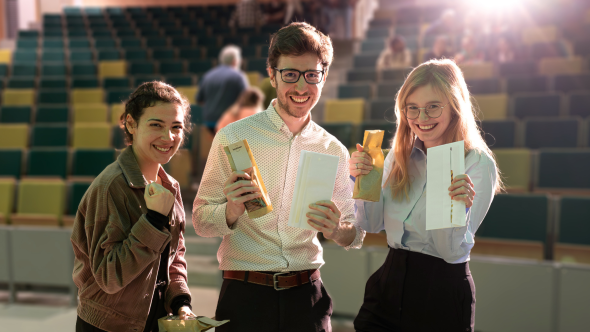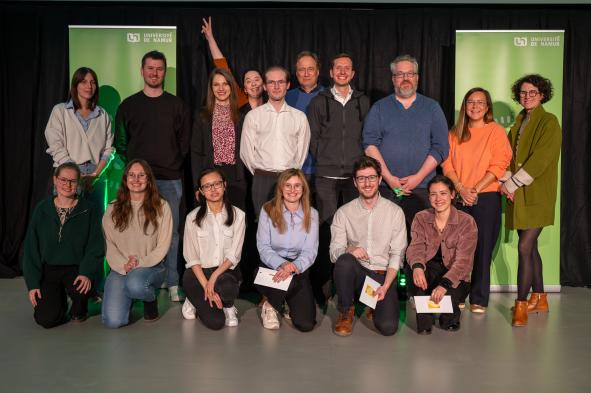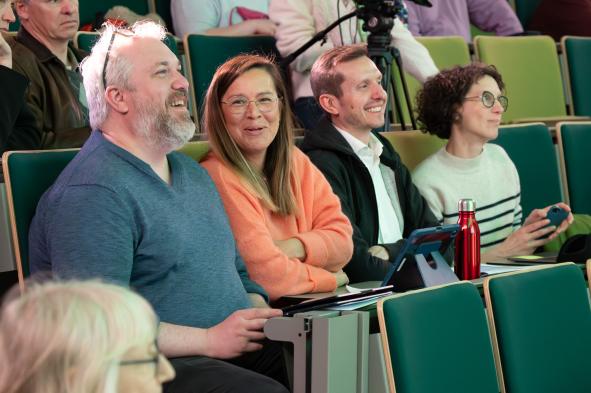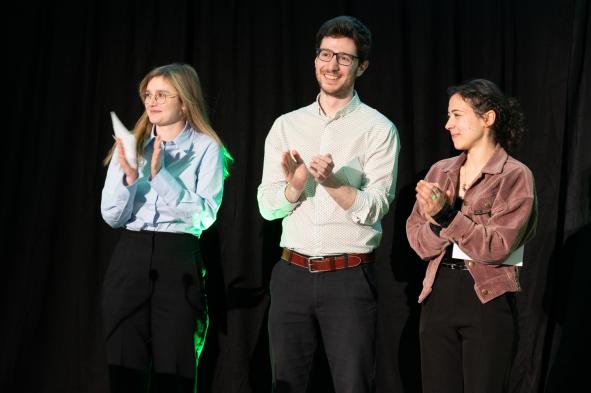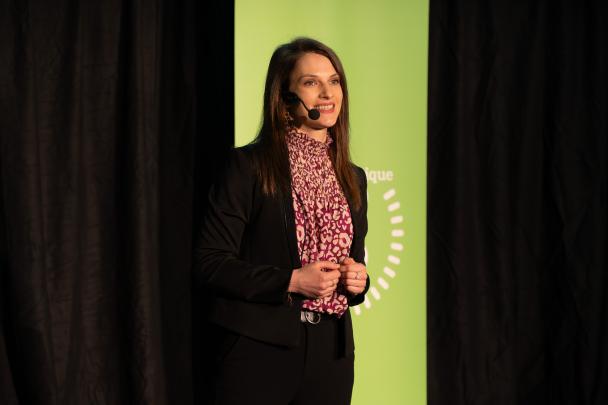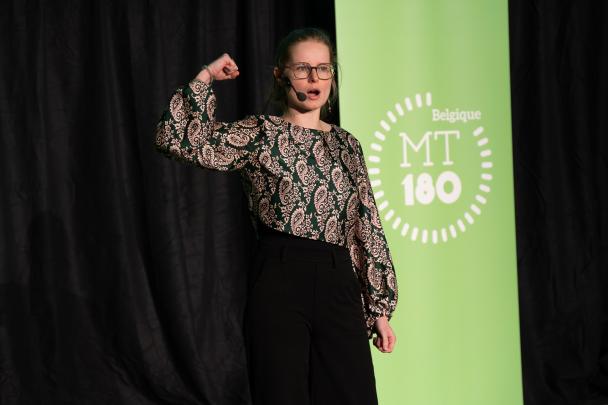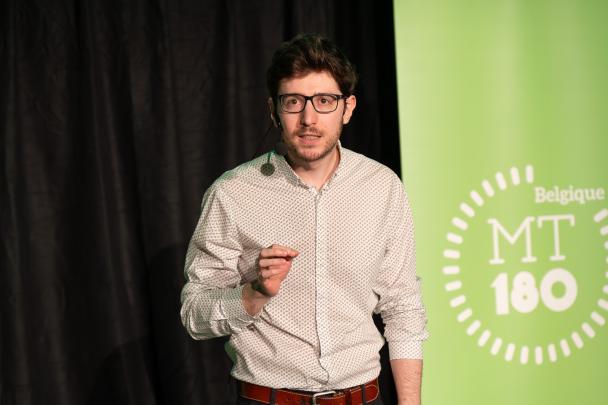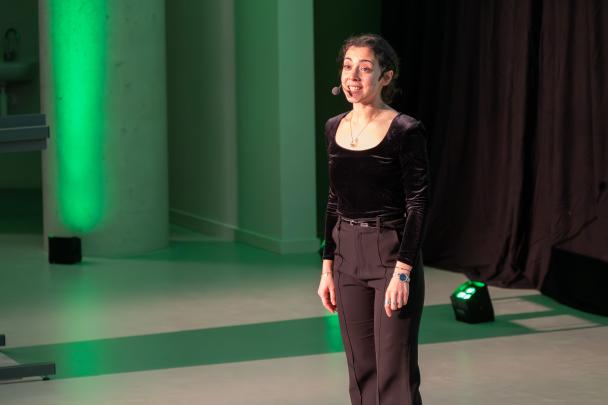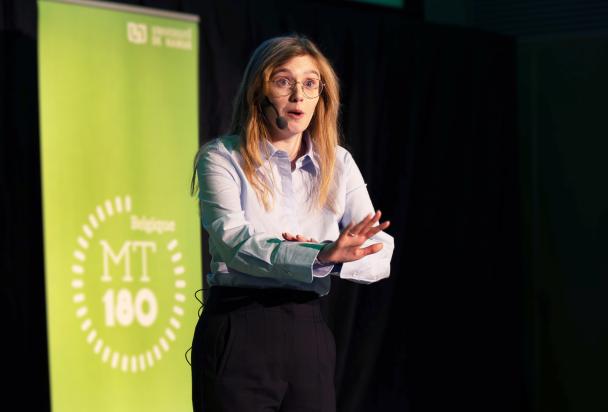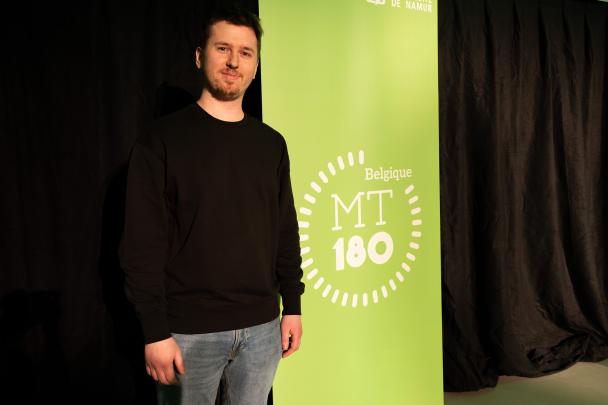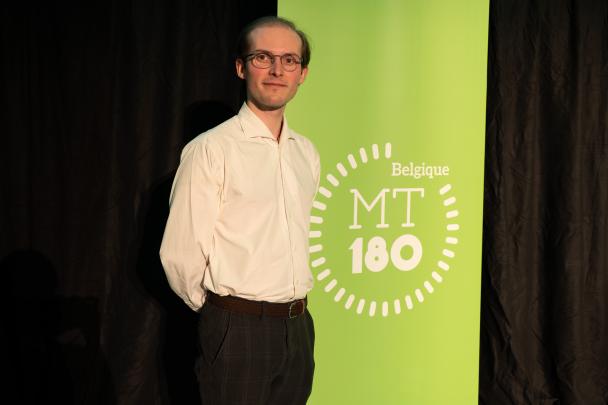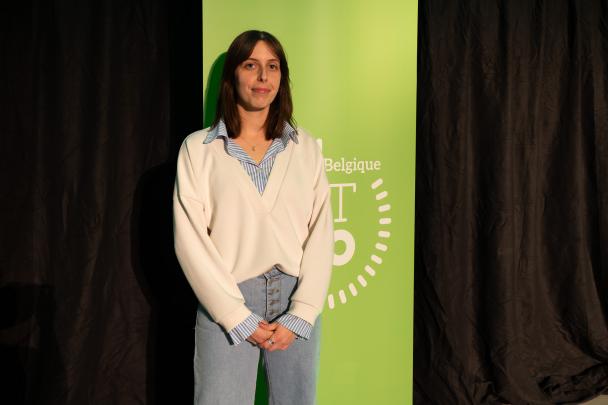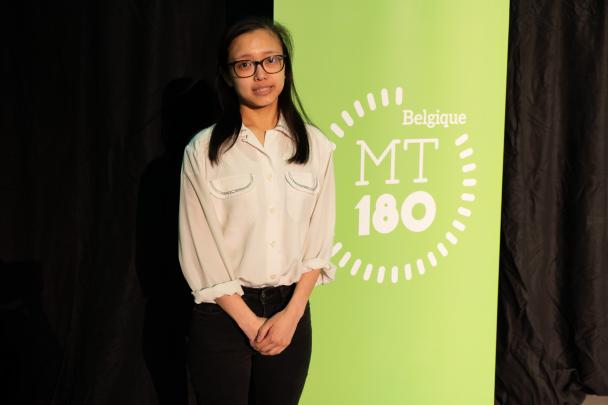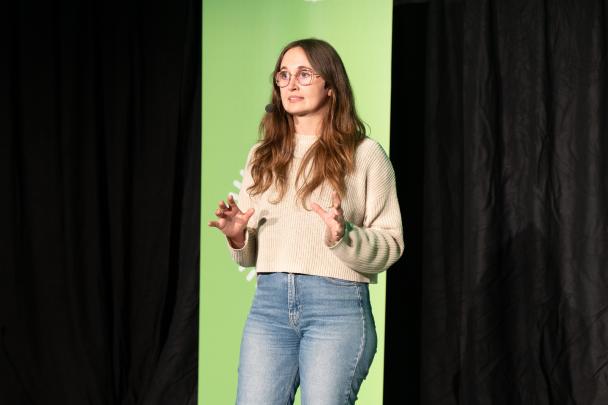In order to prepare them optimally for the demands of the competition and those of their thesis or conference defense, candidates have benefited from training in popularized communication, in the construction of a structured pitch, as well as in public speaking enabling them to master natural body language and manage the stress provoked by such an exercise. This training course is organized by Aline Wilmet, scientific mediator at Confluent des Savoirs and scientific communication coach, and by Jacques Neefs, actor, director and teacher at the Brussels Conservatory. The training, which is spread over three months as part of MT180, is also available in a short format (from 1h to 2 days' training) for the university community and also offered on an inter-university basis.
Aline Wilmet describes the training experienced by candidates:
"Each year, Le Confluent des Savoirs offers in-depth training to prepare candidates for clear and concise communication. Our aim is to give young researchers the opportunity to practice a difficult communication exercise that is communicating to the general public. It's all about communicating a clear, concrete message, rooted in everyday life, or using storytelling that appeals to emotions, shared experience or the daily grind of research... There's no magic formula. You have to adapt your message without distorting your research. It's a meticulous job to choose the message that will strike a chord with the audience, while conveying in a clear and accessible way the objectives, challenges and working methods of the researchers involved in their doctoral thesis. Obviously, it's not possible to cover all the subtleties of a multi-faceted research project in just three minutes. But for me, the challenge goes far beyond the competition: it's an exercise in communication, a first step that opens the door to other popularization activities: a journalist interview, taking part in a conference, a meeting with the public, a workshop at the Printemps des Sciences, a popularized article, etc. Who better to talk about your research than your doctoral thesis? Who better to talk about your research than a researcher? Having myself taken part in the competition with my thesis during the 2nd edition in 2015, the exercise enabled me to approach my subject differently, to give it more value because I realized that it could be of interest to a wider audience than just specialists. It's rewarding, it's motivating, it's challenging, you learn and share lots of things. It's a great human adventure, and one that's valued as part of doctoral training!"
